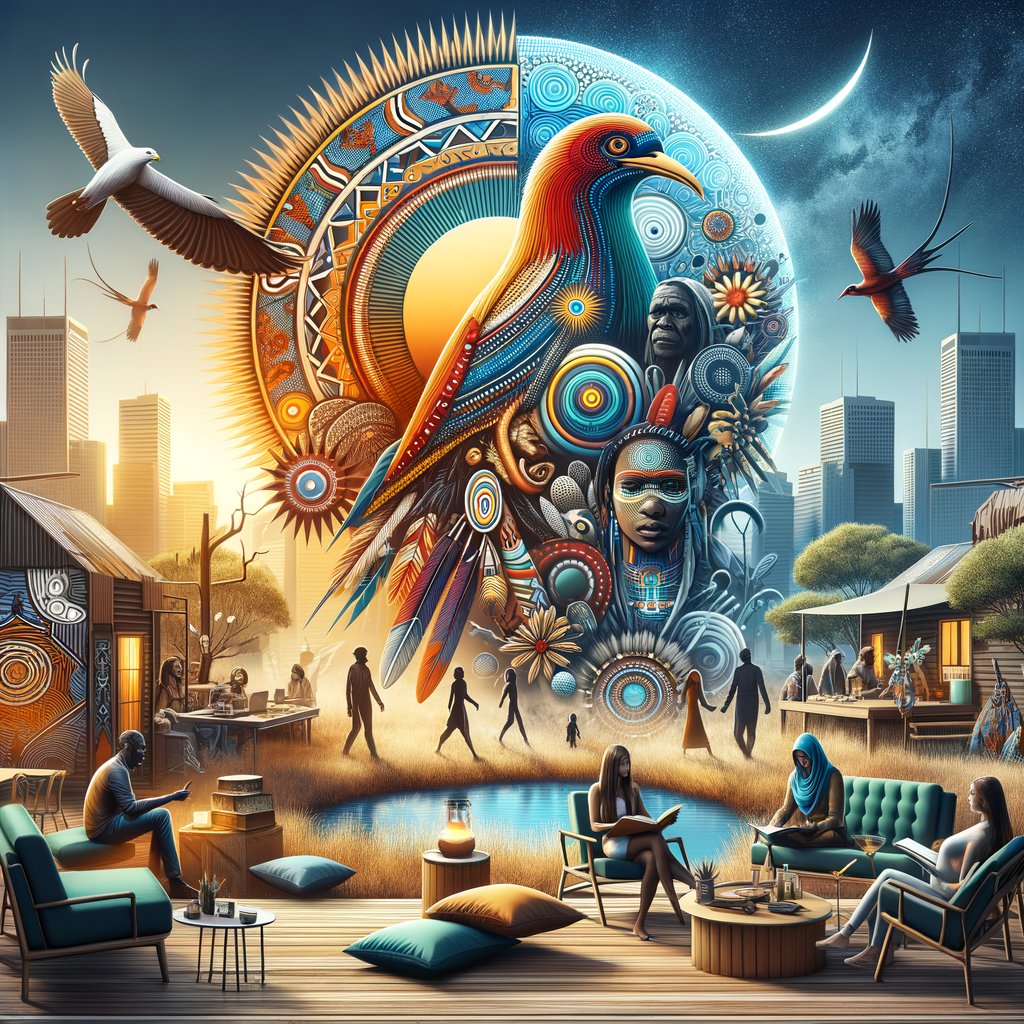Physical Address
304 North Cardinal St.
Dorchester Center, MA 02124
Physical Address
304 North Cardinal St.
Dorchester Center, MA 02124

As we navigate through the 21st century, it becomes increasingly important to recognise and appreciate the rich tapestry of cultures that have shaped Australia. A significant part of this cultural landscape is the indigenous heritage, a legacy that has been passed down for over 65,000 years. This article aims to explore the indigenous heritage in contemporary Australian society and its profound influence on our collective identity.
The indigenous culture in Australia is one of the oldest living cultures in the world. It comprises hundreds of nations or language groups, each with distinct traditions, beliefs and languages. The Aboriginal and Torres Strait Islander peoples have lived on this continent for tens of thousands of years, long before European colonisation began in the late 18th century.
Despite facing numerous challenges during colonial times and beyond – including dispossession, discrimination and forced assimilation – indigenous Australians have managed to preserve their vibrant cultures. Their resilience is testament to their inherent strength and deep connection with their ancestral lands.
In contemporary Australian society, indigenous heritage continues to play a vital role. From arts and music to land management practices, it influences various aspects of our lives.
Arts: Indigenous art forms like dot painting, bark painting and sculpture are renowned worldwide for their unique style and symbolism. Many contemporary Australian artists incorporate elements from these traditional art forms into their work, creating a fusion that celebrates both old and new.
Music: Traditional indigenous music often incorporates didgeridoos, clapsticks and vocal chants. These sounds have found their way into contemporary music genres such as rock, pop and hip-hop. Artists like Yothu Yindi, Jessica Mauboy and Baker Boy have successfully blended traditional indigenous music with modern elements, gaining international acclaim.
Land Management: Indigenous Australians have a deep understanding of the Australian landscape and its ecosystems. Their traditional land management practices, such as controlled burning or ‘fire-stick farming’, are increasingly recognised for their effectiveness in preventing bushfires and promoting biodiversity. These practices are now being incorporated into modern land management strategies.
While we celebrate the influence of indigenous heritage on contemporary society, it is equally important to acknowledge the injustices faced by indigenous Australians throughout history. The path to reconciliation involves recognising these past wrongs and working towards equality and justice.
The annual National Reconciliation Week (27 May – 3 June) and NAIDOC Week (usually held in July) are significant events that promote understanding, respect and recognition of indigenous cultures. They provide opportunities for all Australians to learn about indigenous heritage and contribute to achieving reconciliation.
The future of indigenous heritage in Australia looks promising. More young people are learning about indigenous cultures at school, while initiatives like the Uluru Statement from the Heart call for constitutional recognition of Aboriginal and Torres Strait Islander peoples.
This increased awareness is fostering a greater appreciation for indigenous cultures among younger generations. It’s encouraging to see more youth engaging with this rich heritage – whether it’s through art, music, language or simply learning about the history and traditions of our First Nations peoples.
As we continue to explore our shared history and move forward together, let us remember that acknowledging, respecting and celebrating our diverse cultural heritages is what truly makes us Australian. By embracing our unique blend of cultures – with indigenous heritage at its heart – we can create an inclusive society that values the contributions of all its members.